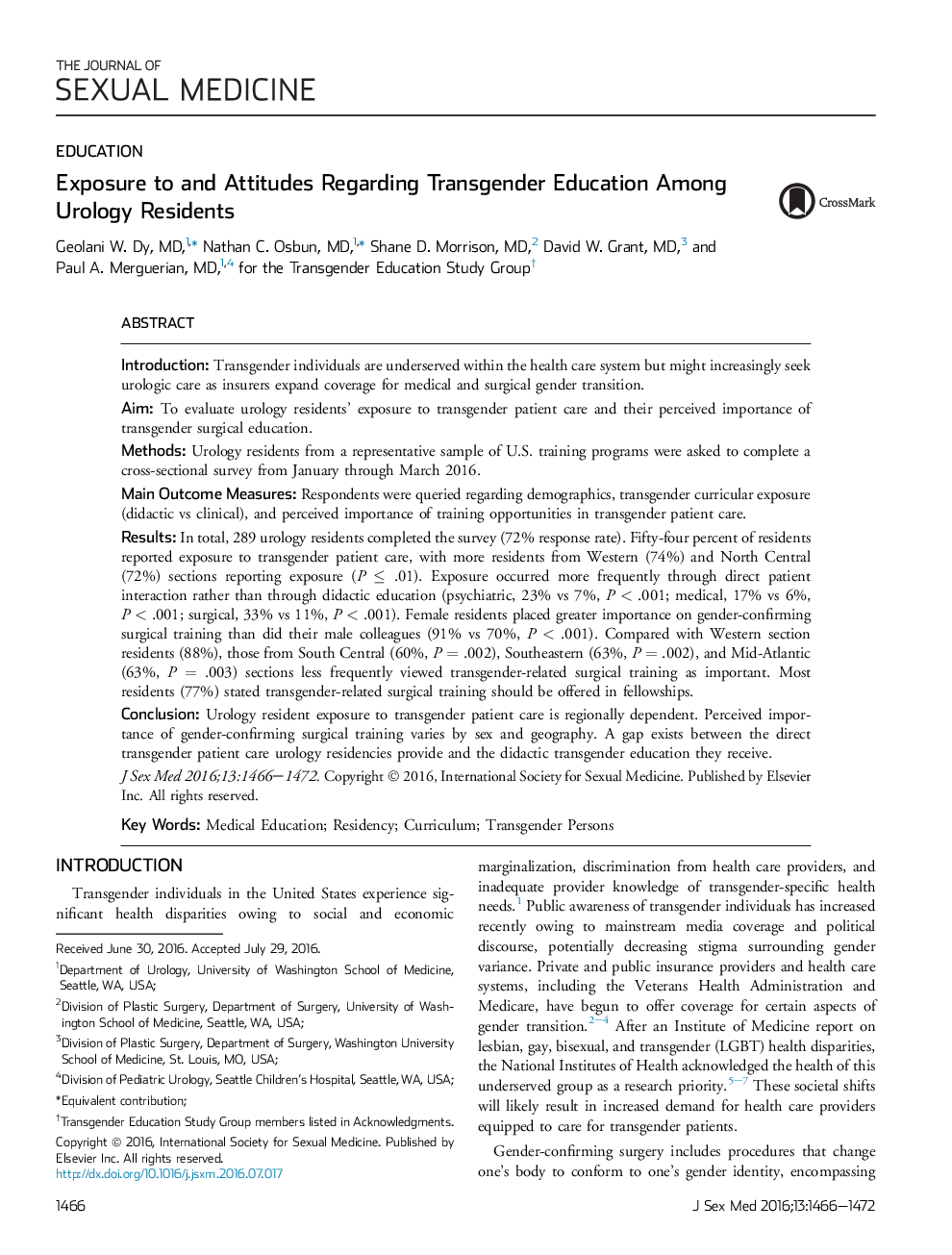| Article ID | Journal | Published Year | Pages | File Type |
|---|---|---|---|---|
| 4268949 | The Journal of Sexual Medicine | 2016 | 7 Pages |
IntroductionTransgender individuals are underserved within the health care system but might increasingly seek urologic care as insurers expand coverage for medical and surgical gender transition.AimTo evaluate urology residents' exposure to transgender patient care and their perceived importance of transgender surgical education.MethodsUrology residents from a representative sample of U.S. training programs were asked to complete a cross-sectional survey from January through March 2016.Main Outcome MeasuresRespondents were queried regarding demographics, transgender curricular exposure (didactic vs clinical), and perceived importance of training opportunities in transgender patient care.ResultsIn total, 289 urology residents completed the survey (72% response rate). Fifty-four percent of residents reported exposure to transgender patient care, with more residents from Western (74%) and North Central (72%) sections reporting exposure (P ≤ .01). Exposure occurred more frequently through direct patient interaction rather than through didactic education (psychiatric, 23% vs 7%, P < .001; medical, 17% vs 6%, P < .001; surgical, 33% vs 11%, P < .001). Female residents placed greater importance on gender-confirming surgical training than did their male colleagues (91% vs 70%, P < .001). Compared with Western section residents (88%), those from South Central (60%, P = .002), Southeastern (63%, P = .002), and Mid-Atlantic (63%, P = .003) sections less frequently viewed transgender-related surgical training as important. Most residents (77%) stated transgender-related surgical training should be offered in fellowships.ConclusionUrology resident exposure to transgender patient care is regionally dependent. Perceived importance of gender-confirming surgical training varies by sex and geography. A gap exists between the direct transgender patient care urology residencies provide and the didactic transgender education they receive.
